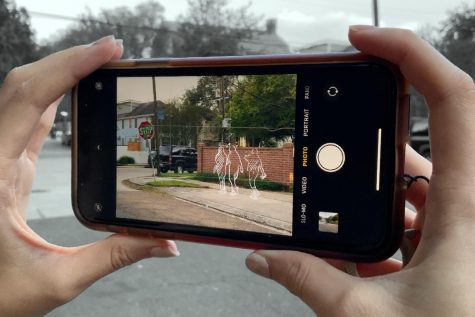OPINION | Tulane’s concern reporting form makes tattling trendy
October 14, 2020

In the midst of the coronavirus, tattling no longer holds the malicious subcontext as before. Tulane University’s anonymous online reporting form run through the Office of Student Conduct, while implemented to assist victims of violations of the Student Code of Conduct or students of concern, has since morphed the student body into somewhat of a pandemic police force.
Tulane highlighted the reporting application on Instagram last month. The post was met with comments reading, “Nice to see my alma [mater] encouraging students to snitch their peers. Good set of values, Tulane,” “Are you creating a culture of intimidation and vigilantes?” and “Troubling to say the least.” Yet, the university has not addressed these issues.
When Tulane students were polled on their sentiments, in an independent survey regarding this resource, 57% of respondents answered that the system is prone to causing excessive tattling, and 74% said that they believe there are better ways to handle violations of COVID-19 protocols.
Nevertheless, the concern reporting resource does offer students the ability to call out misconduct without the social repercussions of direct confrontation. The program also assists in the creation of a sense of public safety on campus. However, the toxic nature of students’ use of such technology must stop.
It is far too easy to make general assumptions of a student’s behavior captured in one image. Without knowing the precursors or context of a given scenario, it is understandable that some members of the community may feel obligated to speak out against such behavior. While screenshotting an Instagram post or Snapchat story is easier than simply asking a student of concern “What were you thinking?” and informing them of the consequences of their behavior, that does not justify immediate administrative action.
That being said, some behaviors are more than acceptable to report in this formal manner. Large maskless gatherings in particular merit such a response. Regardless, the unprecedented nature of the pandemic and the ever-changing guidelines issued by the university will inevitably lead to some students not understanding new standards or unintentional forgetfulness. These errors are not so egregious that they cannot be thwarted by simple reminders by peers.
Indeed, students should be mindful of their actions in proportion to the vulnerability of the New Orleans community and their colleagues. Promoting an Orwellian “Big Brother” system is detrimental to campus culture and the mindset of students. Not to mention, it breeds distrust and potential pettiness in a time where a sense of community is scarce.
Though in practice, students should abide by and be aware of all of Tulane’s guidelines, this is an unrealistic expectation. College students are a work in progress, still forming their sense of integrity, purpose and self. The vast majority of the student body seems to make a conscious effort to prevent the spread of the coronavirus. Those same individuals may briefly forget to replace their masks after eating or stand too close to their peers on campus. These momentary lapses in judgment do not necessitate administrative procedures or potential formal consequences.
Continuing to treat the concern reporting system as the sole means of promoting safe practices makes students resent public health protocols and their peers. Those wishing to use the form must take into consideration the true purpose of their report and the weight of their concern compared to far more detrimental examples of flouting the rules. If some members of the student body wish to act as a higher power, they must also exercise communication skills that equally demonstrate this assumed maturity.
In a time where the Tulane community remains both physically and emotionally isolated, students need not exacerbate the unpredictability of life during a pandemic. Instead, they should prioritize safely rebuilding the sense of community that once radiated through campus. Ultimately, rather than encouraging students to turn on one another, the university should continuously remind students of their responsibility to act rationally and urge students to lead by example.






















Leave a Comment